Cardinal Robert Prevost elected first US Pope, succeeding Pope Francis
At 69, Chicago-born Prevost, a longtime missionary in Peru, became a cardinal in 2023 and is known for his quiet style
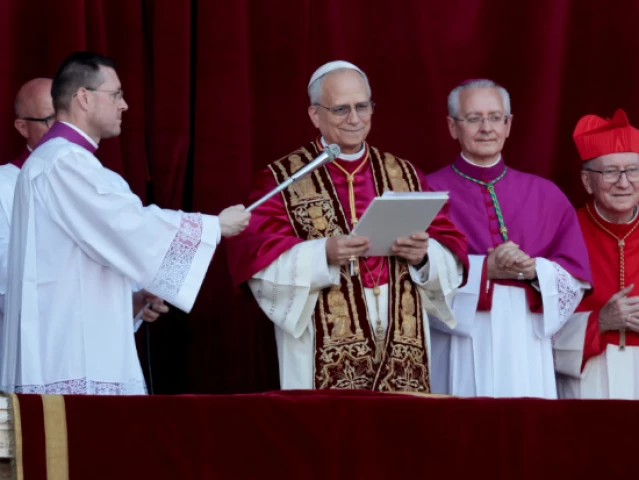
Cardinal Robert Prevost was elected on Thursday as the new leader of the Catholic Church, marking a historic moment as the first US pontiff.
Taking the name Pope Leo XIV, he appeared on the central balcony of St. Peter's Basilica about 70 minutes after white smoke billowed from the chimney atop the Sistine Chapel, signaling that the 133 cardinal electors had chosen a new leader for the 1.4 billion-member Catholic Church.
"Peace be with you all," Pope Leo XIV told the cheering crowd in St. Peter's Square, where tens of thousands had gathered to witness the announcement. The choice of Prevost was officially declared by French Cardinal Dominique Mamberti, who uttered the Latin words "Habemus Papam" (We have a pope).
At 69 years old and originally from Chicago, Prevost has spent most of his career as a missionary in Peru. He became a cardinal only in 2023 and is known for his quiet demeanor and limited media presence. Prevost succeeds Pope Francis, who passed away last month after leading the Church for 12 years. Pope Francis, the first Latin American pope, had sought to bring greater openness to the Church, enacting reforms and encouraging debate on divisive issues such as women's ordination and the inclusion of LGBT Catholics.
In the lead-up to the conclave, some cardinals expressed a desire for continuity with Pope Francis’ vision of reform and greater inclusion, while others pushed for a return to more traditional practices. Prevost had garnered attention for his support of Pope Francis’ commitment to social justice, which includes an inclusive approach to the Catholic community.
Prevost served as bishop of Chiclayo, Peru, from 2015 to 2023 before being called to Rome by Pope Francis to head the Vatican office responsible for selecting bishops worldwide. As a result, he has played a role in choosing many of the Church’s bishops. During a 2023 press conference, Prevost remarked, "Our work is to enlarge the tent and to let everyone know they are welcome inside the Church."
White smoke billowed from the chimney of the Sistine Chapel on Thursday, signalling that cardinals locked inside have elected a new leader for the world's 1.4 billion Catholics.
Thousands of pilgrims and curious onlookers in St Peter's Square cheered and applauded as the smoke appeared and bells began to ring, indicating the 2,000-year-old institution has its 267th pope.
All eyes now turn to the balcony of St Peter's Basilica, to see who has been elected to succeed Pope Francis, an Argentine reformer who died last month after 12 years as leader of the worldwide Church.
The new pontiff will be introduced in Latin with his chosen papal name and address the world for the first time.
He faces a momentous task: as well as asserting his moral voice on a conflict-torn global stage, he faces burning Church issues from the continued fall-out from the sexual abuse scandal to the Vatican's troubled balance sheets.
Some 133 "Princes of the Church" from five continents -- the largest conclave ever -- began voting on Wednesday afternoon.
Sworn to secrecy, on pain of excommunication, their only means of communicating their progress to the outside world was by sending up smoke through the chimney of the Sistine Chapel.
On Wednesday evening and then again on Thursday lunchtime, the smoke was black, emitting disappointed sighs from the tens of thousands watching.
But on Thursday afternoon just after 6pm (1600 GMT) the smoke emitted was white, confirming that the Catholic Church has a new spiritual leader.
By tradition, he now enters the Room of Tears -- where freshly-elected popes give free rein to their emotions -- to don a papal cassock for the first time, before returning to the Sistine Chapel so the cardinals can pledge their obedience.
He will then appear on the balcony along with a senior cardinal, who will announce to the waiting crowds "Habemus Papem" ("We have a pope").
The pope will then give a short speech and impart his first "Urbi et Orbi" ("To the City and the World") blessing.
The election has come at a time of great geopolitical uncertainty, which was seen as a key voting issue, along with the rifts within the Church.
Francis was a compassionate reformer who prioritised migrants and the environment, but he angered traditionalists who wanted a defender of doctrine rather than a headline-maker.
Some 80 percent of the cardinal electors were appointed by Francis. Hailing from 70 countries around the world, it was the most international conclave ever.
That was no guarantee, however, that the cardinals would pick someone in his vein.
The question was whether to choose a pastor or diplomat, a liberal or conservative, someone versed in the Curia -- the Church's governing body -- or a relative outsider from areas of the world where Catholic faith is thriving.
Before the cardinals were locked into the Sistine Chapel Wednesday, their dean Giovanni Battista Re urged them to choose someone able to protect the Church's unity.
The next pope must also be able to lead "at this difficult and complex turning point in history", amid raging conflicts around the world and the rise of ultra-nationalist parties.
The Church has also had difficulty in adapting to the modern world, with declining priest numbers and increasingly empty pews in the West.
The papal inauguration usually takes place less than a week after the election with a mass celebrated before political and religious leaders from around the world.
The new pope will likely do a tour of St Peter's Square in his popemobile for the first time, before delivering a homily outlining his priorities.





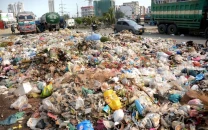
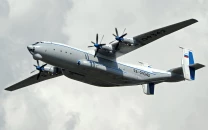
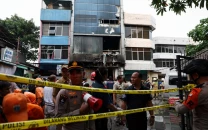
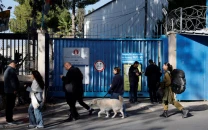

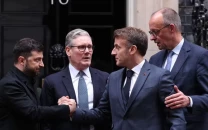
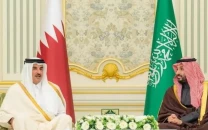
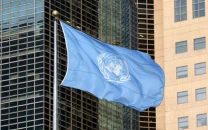












COMMENTS
Comments are moderated and generally will be posted if they are on-topic and not abusive.
For more information, please see our Comments FAQ